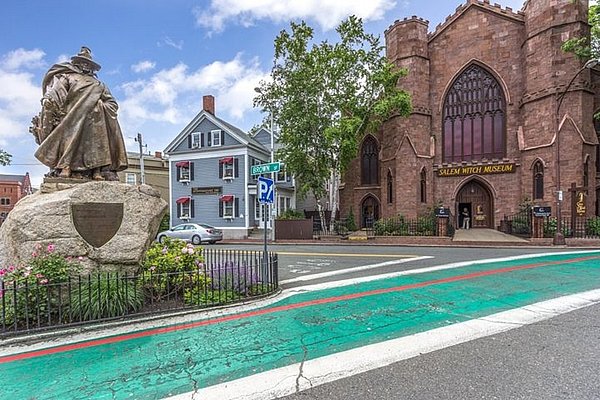Salem, Oregon grapples with financial challenges stemming from the Loss of Tax Revenue due to state-owned land within its limits, prompting Representative Tom Andersen to introduce House Bill 4072. This legislation proposes a solution: a three-year pilot program to allocate up to $6 million annually from the state to offset the Loss of Tax Revenue caused by these state-owned properties. The funds would compensate Salem for essential services such as fire, police, and emergency medical assistance provided to state agencies based on their use of city land.

Photo from Google
A Beacon of Hope for Salem’s Loss of Tax Revenue – Innovative Pilot Program Sparks Statewide Potential
Andersen’s bipartisan initiative gained support from various legislators, including Senator Deb Patterson and Representative Kevin Mannix, signaling hope for financial relief amid the Loss of Tax Revenue. The proposed pilot program, called Payment In-Lieu of Taxes, aims to hold state agencies accountable for the strain on local resources without contributing financially. If successful, the program could become a statewide model, benefitting other Oregon cities facing similar budget shortfalls and grappling with the Loss of Tax Revenue.
Salem’s Revenue Task Force is actively exploring multiple options to address the city’s financial woes caused by the Loss of Tax Revenue. These include potential increases in city operation fees, local tax levies through ballot measures, or revisiting a voter-approved payroll tax. Salem Mayor Chris Hoy expressed gratitude for the attention given to the issue, emphasizing the importance of finding a solution to the city’s broken revenue system and addressing the Loss of Tax Revenue.
READ ALSO: Tracking Your Ohio Federal Tax Refund Status Made Simple
Andersen’s Innovative Solution Gains Bipartisan Support for Salem’s Financial Relief
The primary source of funding for Oregon cities, including Salem, is property taxes. However, exemptions for schools, churches, nonprofits, and government facilities, including state-owned properties, create a gap in revenue and contribute to the overall Loss of Tax Revenue. A September report indicated that Salem taxpayers essentially subsidized public services for these tax-exempt locations, exacerbating the Loss of Tax Revenue challenge. Andersen, drawing inspiration from other cities like Olympia, Washington, aims to address this gap through a unique formula tailored to Oregon’s needs and combat the ongoing Loss of Tax Revenue.
With strong bipartisan support, including backing from Governor Tina Kotek, Andersen remains optimistic that this collaborative effort will bring financial relief to Salem, helping bridge the budgetary gaps caused by the ongoing Loss of Tax Revenue from state-owned land.

















































